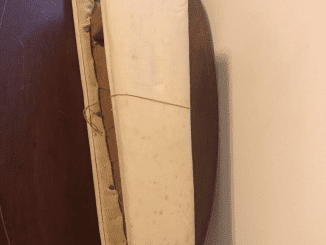It’s not uncommon for people to adopt clever tricks to streamline their morning routines. One such practice involves cracking eggs the night before, storing them in a cup, and using them for scrambled eggs the next morning. While this might seem like a time-saver, it raises questions about food safety and freshness. If you’ve ever wondered whether this habit is safe or how long cracked eggs last, you’re in the right place. Let’s crack into the details.
Understanding the Risks of Storing Cracked Eggs

When an egg’s shell is intact, it provides a natural barrier against bacteria and contaminants. Once cracked, that protective layer is gone, exposing the egg’s contents to air and potential germs. This creates a breeding ground for bacteria like Salmonella, which can cause serious foodborne illnesses. While refrigeration slows bacterial growth, it doesn’t eliminate the risk entirely.
The longer a cracked egg sits, the higher the chance of contamination, especially if the eggs are not stored properly. That’s why understanding the risks is crucial when deciding whether to store cracked eggs overnight.
The Science of Egg Safety and Spoilage
Eggs are naturally rich in proteins and nutrients, but these qualities also make them susceptible to spoilage. When exposed to air, the proteins in the egg white begin to break down, and the yolk may start to lose its structure. This degradation not only affects the egg’s taste and texture but can also lead to bacterial growth.
Refrigeration slows this process significantly by keeping the temperature below 40°F (4°C), which is the threshold for bacterial proliferation. However, even in the fridge, cracked eggs are best consumed quickly to avoid spoilage.
How Long Can Cracked Eggs Be Safely Stored?
According to the USDA, cracked eggs should ideally be used immediately to minimize the risk of contamination. However, if you choose to store them, they should be transferred to a clean, airtight container and refrigerated at a consistent temperature of 40°F (4°C) or below. Under these conditions, cracked eggs can last for up to two days.
It’s important to note that this timeline assumes optimal storage conditions. If the eggs have been left at room temperature for more than two hours before refrigeration, they should be discarded, as bacteria can multiply rapidly in warmer conditions.
Signs That Your Cracked Eggs Have Gone Bad
Before using stored cracked eggs, inspect them carefully. Here are some telltale signs that the eggs may no longer be safe to eat:
- Unpleasant Odor: Fresh eggs are nearly odorless. A sour or sulfuric smell is a clear indication of spoilage.
- Discoloration: If the egg white or yolk appears cloudy, grayish, or has spots, it’s best to toss it.
- Slimy Texture: A change in texture, such as a slimy or overly runny consistency, signals bacterial growth.
- Bubbles or Foam: Unusual bubbling may indicate fermentation caused by bacteria.
If you notice any of these signs, discard the eggs immediately to avoid health risks.
Practical Tips for Storing Cracked Eggs Safely

If cracking eggs the night before is a must for your morning routine, follow these safety tips to minimize risks:
- Use Clean Containers: Transfer the eggs to a clean, sealed container to protect them from airborne contaminants.
- Refrigerate Promptly: Store the container in the coldest part of the fridge, not in the door where temperatures fluctuate.
- Label the Date: Write the storage date on the container to track how long the eggs have been in the fridge.
- Avoid Room Temperature: Never leave cracked eggs at room temperature for more than two hours.
By following these steps, you can reduce the risk of spoilage and ensure your eggs are safe to eat.
Convenient Alternatives to Cracking Eggs in Advance
If you’re looking for hassle-free breakfast prep without the potential risks of storing cracked eggs, consider these alternatives:

- Make-Ahead Breakfasts: Prepare dishes like breakfast casseroles or egg muffins the night before and simply reheat them in the morning.
- Use Liquid Egg Products: Pasteurized liquid eggs are a convenient and safe option that eliminates the need to crack eggs in advance.
- Cook Eggs Ahead of Time: Scramble or boil eggs the night before and store them in the fridge for a quick grab-and-go breakfast.
These options provide the same level of convenience without compromising food safety.
Conclusion: Is It Safe to Eat Cracked Eggs Stored Overnight?
While cracking eggs the night before might save a few minutes in the morning, it’s important to weigh the potential risks against the convenience. Proper storage methods—such as using airtight containers and refrigerating promptly—can help minimize these risks, but the safest approach is to use freshly cracked eggs whenever possible.
If you’re committed to your pre-cracking routine, be vigilant about following food safety guidelines. By staying informed and cautious, you can enjoy your scrambled eggs with peace of mind and start your day on the right foot.


